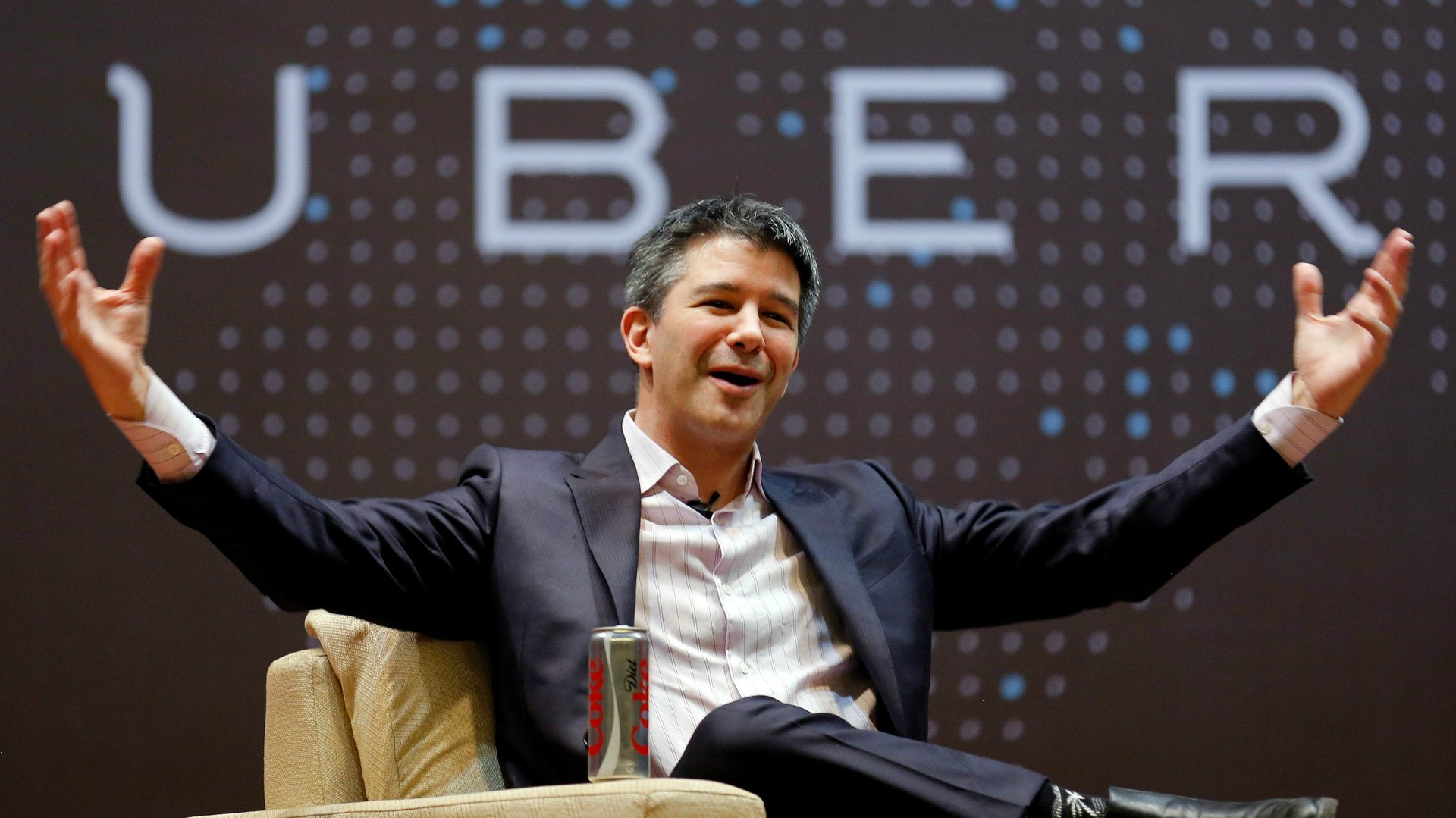History has paved a path for CEOs to return and it’s not one for Travis Kalanick
Boards have a penchant for bringing back ousted company founders: “boomerang bosses” is a well-worn phrase. So can we expect the same to happen to Travis Kalanick at Uber?


Boards have a penchant for bringing back ousted company founders: “boomerang bosses” is a well-worn phrase. So can we expect the same to happen to Travis Kalanick at Uber?
Perhaps the best way to start answering that question is to dig into what happened with Steve Jobs, the Apple leader who is probably the best-known example of a fired founder making a monumental comeback.
Kalanick certainly has the reckless, upstart, law-defying mentality many saw in Jobs. And while the specifics are different—Kalanick has suffered seemingly irreparable public relations damage with Uber, while at Apple in the 1980s Jobs was facing a politics and a power struggle at the top of the company—both were ousted for similar reasons. Both men revelled in rebellion at the start of their careers and didn’t manage to make the transition from fired up go-getter to sensible decision-maker at the pace required by a rapidly growing company.
Jobs left Apple in 1985, only to return over a decade later. It is striking that Jobs’ reappointment as Apple’s CEO came in 1997, a year after the company gobbled up NeXT, the software company Jobs had been working on in the interim. Clearly, the company craved creativity and saw it in their former boss. When Jobs was ushered back to the help, Apple had been operating at a loss just as its biggest competitor, Microsoft, was seeing revenues grow due to the introduction of the Windows 95 operating system.
The Jobs-Apple trajectory is a typical story. Most founders are only asked to return to chief executive roles when their darling is starting to rot and their industry’s playing field is changing. Infosys brought back its co-founder Narayana Murthy in 2013, desperate to inject some life back into an ailing company that had plenty of cash but dismal growth rates. In May this year, Biz Stone announced he would be rejoining Twitter, along with co-founder Jack Dorsey, amid long-running losses at the company. Jerry Wang, co-founder of Yahoo, who from the birth of the company in 1995 steered clear of getting involved in strategy and stuck to “creating good ideas” under the honorary title of “Chief Yahoo,” found himself roped into taking over as CEO in 2007 after a series of mishaps from his predecessor Terry Semel and amid growing competition from Google.
The “founder mentality” is something investors obviously find alluring—but only, it seems, at certain times in the company’s growth. Peter Cappelli, a professor of management at Wharton Business School, puts it down to organizations needing different skills at different times. The entrepreneurial zeal of a founder is great at a company’s start, but often isn’t enough to take a company through its next stage of growth, where stronger management is required. But then they can come to symbolize an energy and openness to innovation that the company may need to spur and sell new ideas further down the line. The founders seem to enjoy it too: speaking of his experience returning to Apple at a Stanford Commencement Speech in 2005, Jobs noted that, “the heaviness of being successful was replaced by the lightness of being a beginner again.”
All that suggests there’s a chance Kalanick does return to Uber—when, down the line, the company becomes a stale elder statesmen in the tech world.
On the other hand, the problem with Kalanick is that any vision he did have has been overshadowed by the macho and misogynistic culture that pervaded all aspects of the company and which Uber is now desperately trying to shake off. Principles that should drive a company forward, and that are central to the ethos of the workplace, have at Uber been decidedly lacking: Kalanick himself struggled to finish describing them in an interview with FastCompany in 2015. He may have created one of the most disruptive companies of the 21st century, but it seems unlikely that the power and energy which Kalanick could offer if he did return would be enough for a company that’s faced such public relations nightmares. Apple could see beyond Jobs’ dictatorial streak because his attitude, though at times difficult, came from the right place: it’s hard to see the same being true of Kalanick.